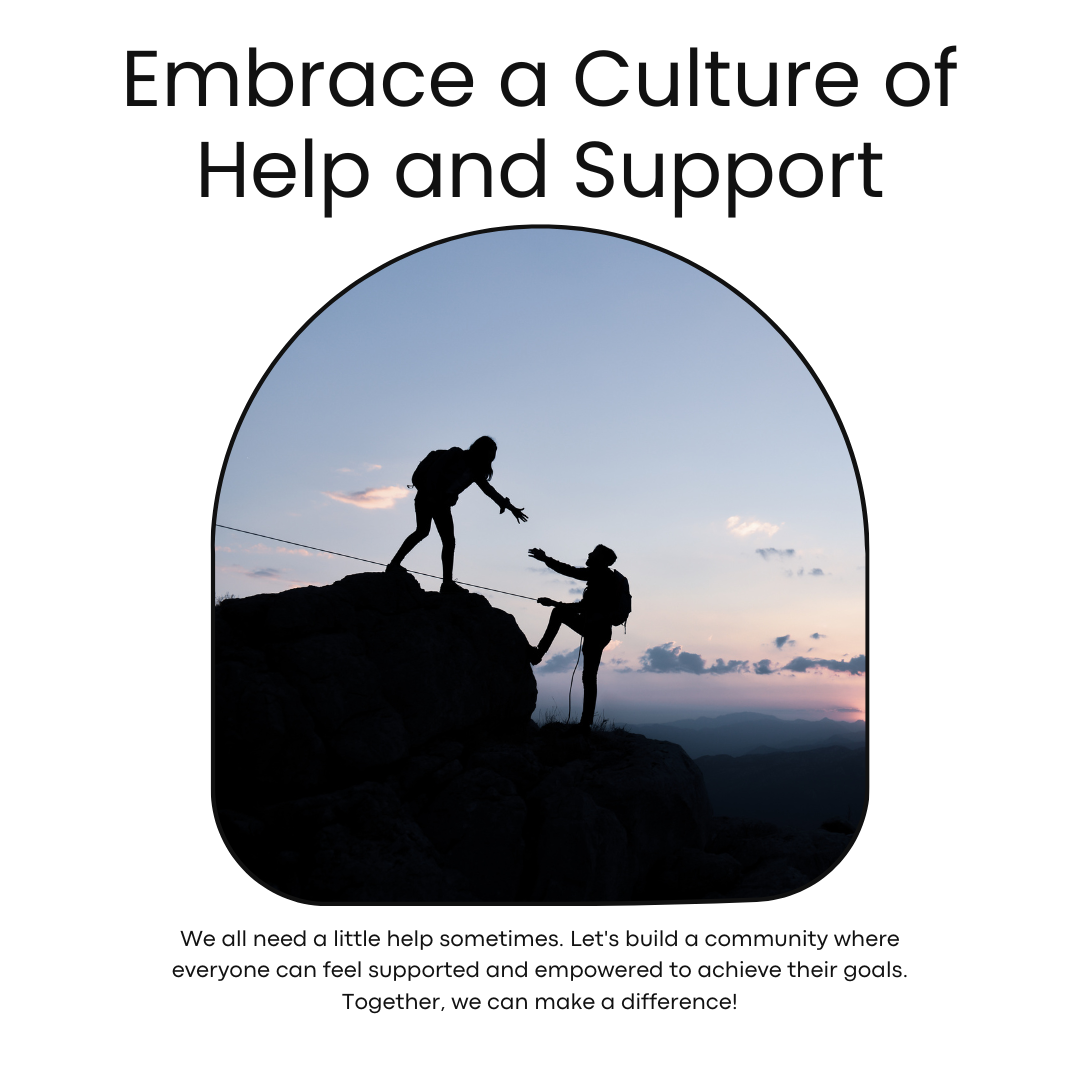The Nuances of
Help vs. Support
This article explores the distinctions between seeking help and seeking support in the intricate fabric of our professional and personal lives. It emphasizes that while these terms might seem interchangeable, they hold subtle nuances that significantly impact our problem-solving approach.
Help:
In its essence, seeking help is akin to reaching out for assistance, guidance, or information. It’s a proactive step towards acquiring the resources or knowledge necessary to overcome a challenge. When you seek help, you are tapping into external expertise or resources to navigate a situation.
Support:
On the other hand, seeking support is more about seeking encouragement, empathy, or emotional assistance. It’s acknowledging that you’re not alone in facing a challenge and that a network of individuals, whether friends, family, or colleagues, is ready to stand beside you. Support is about creating a collaborative environment where emotional well-being is as crucial as problem-solving.

Choosing the Right Path: When to Help vs. When to Seek Support
When to Help:
-
Technical Challenges: When you encounter a problem that requires specific expertise or knowledge, seeking help is the go-to approach. It could be a technical issue, a procedural hurdle, or any situation where external know-how is essential.
-
Skill Development: If your challenge is rooted in a lack of skill or knowledge, seeking help can involve acquiring the necessary training, mentorship, or educational resources.
When to Seek Support:
-
Emotional Struggles: When the challenge extends beyond the technical or procedural and delves into the emotional realm, seeking support is paramount. This could be coping with stress, managing work-life balance, or navigating personal difficulties.
-
Team Collaboration: In a professional setting, seeking support becomes crucial when the challenge is multifaceted and requires collective effort. Building a supportive team environment fosters collaboration and shared responsibility.

The Beliefs That Fuel Action
Asking for help or support isn’t merely a transaction; it’s often rooted in certain beliefs about oneself and the nature of challenges:
-
Vulnerability is Strength: The belief that acknowledging vulnerability is not a sign of weakness but a display of strength. It takes courage to admit when assistance or support is needed.
-
Collaboration Yields Success: Recognizing that success is often a collective effort. By seeking help or support, you embrace the idea that collaboration enhances problem-solving and overall success.
-
Continuous Growth: The belief that every challenge is an opportunity for growth. Seeking help or support is a testament to the commitment to continuous improvement and learning.

Embracing a Culture of Help and Support
In the grand scheme of personal and professional development, the dichotomy between help and support is not a rigid one. In fact, a harmonious blend of both approaches often yields the most comprehensive solutions. The key lies in fostering a culture where asking for help or support is not only acceptable but celebrated.
So, the next time you face a challenge, pause to reflect on whether it’s a moment for help, support, or a balanced combination of both. Embrace the power of collaboration, acknowledge your strengths and vulnerabilities, and watch as your journey towards resolution becomes a shared and enriching experience.
Remember, the courage to ask for help or seek support is a beacon of resilience that lights the way to success.
“The strongest people are those who ask for help when they need it.”
— Kobe Bryant
Have questions, suggestions, or just want to reach out? Feel free to drop us an email at info@yournxthought.com. We value your feedback and look forward to hearing from you!

0 Comments